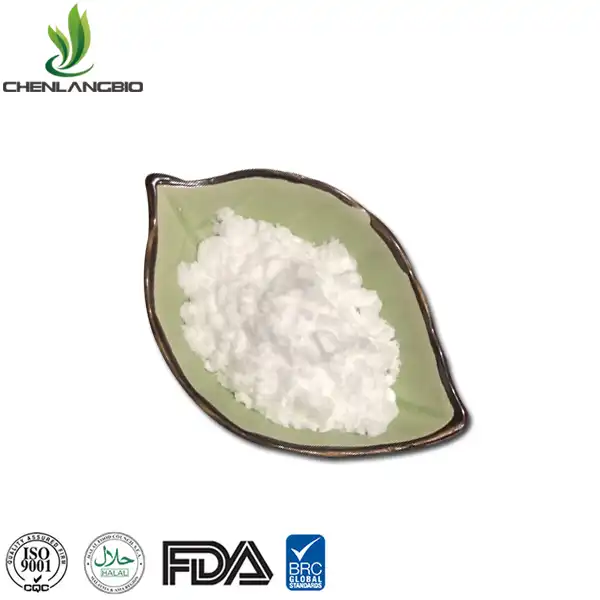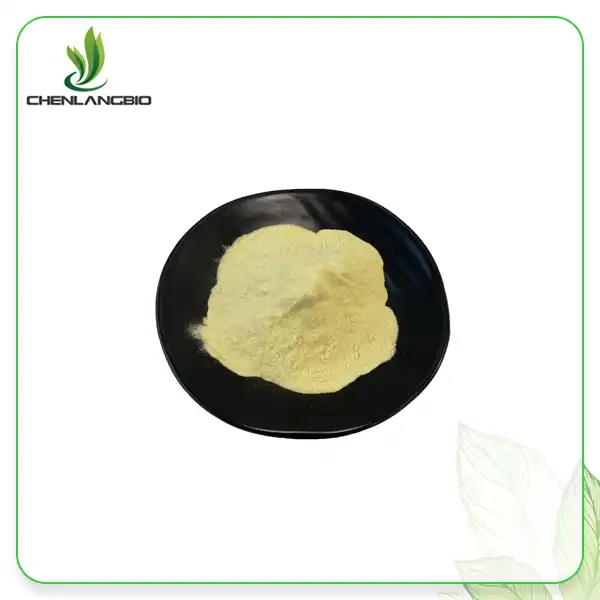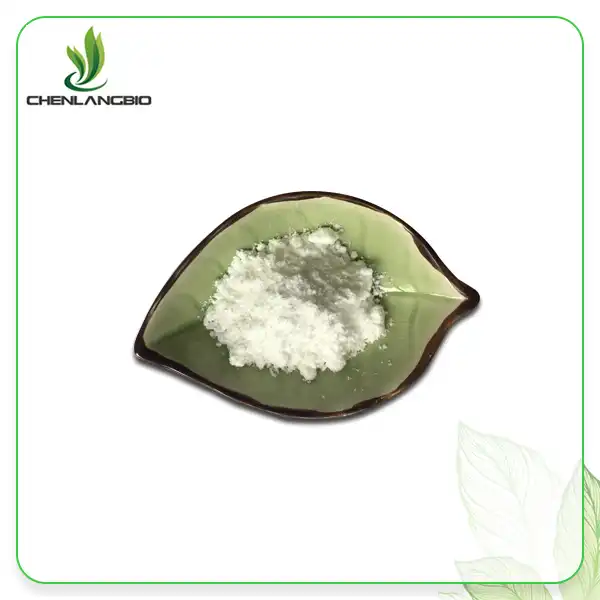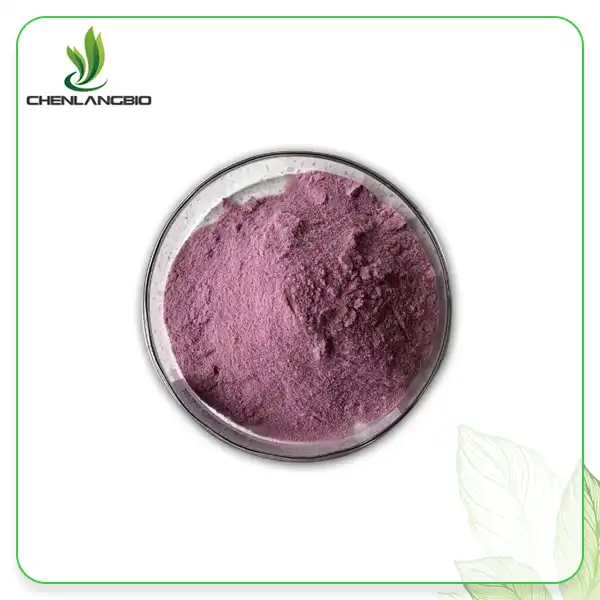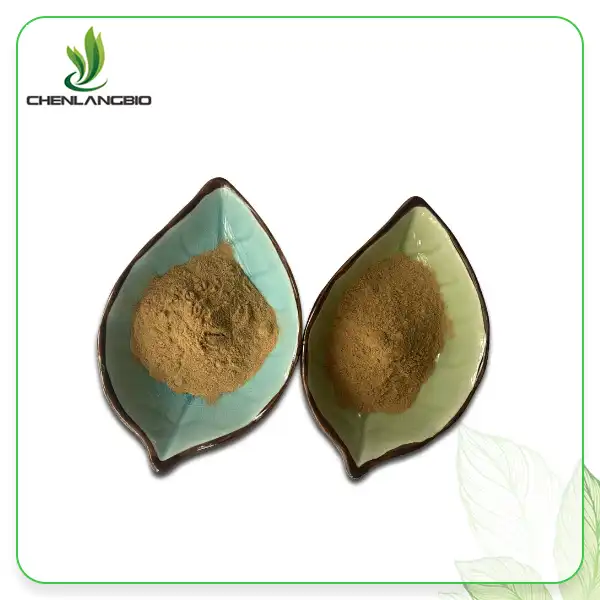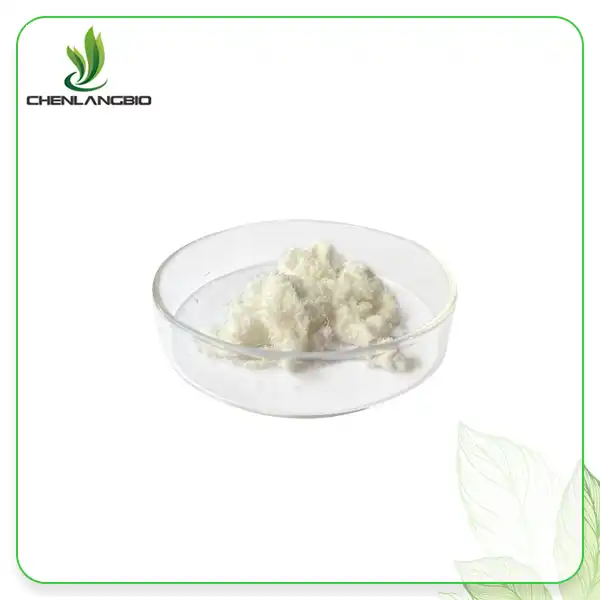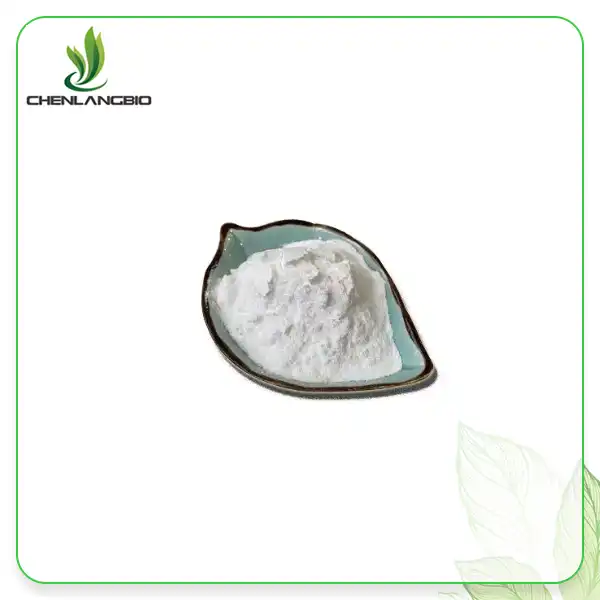Who Should Avoid Hops
2024-12-12 13:14:00
Hops, a key ingredient in beer and a popular herbal supplement, have gained attention for their potential health benefits. However, not everyone should consume hops or hops-derived products. This blog explores the groups of people who should exercise caution or avoid hops altogether. We'll delve into the reasons behind these precautions, examining the effects of hops flavonoids on various health conditions and medications. By understanding who should avoid hops, we can make informed decisions about their consumption and ensure the safety of those who may be at risk.
Understanding Hops and Their Effects
The Nature of Hops and Their Components
Hops, scientifically known as Humulus lupulus, are the female flowers of the hop plant. Rich in several components, including alpha and beta acids, essential oils, and hops flavonoids, these cone-shaped blossoms are particularly interesting for their possible health benefits. These chemicals add to beer's bitter taste and are also behind many of the supposed health advantages connected with hops.
Hops in Traditional and Modern Medicine
Historically, hops' tranquil and soothing effects have been sought for in traditional medicine. Hopes are under research in current times for their possible anti-inflammatory, antioxidant, possibly anti-cancer effects. Hop flavonoids' existence has spurred research on their application as dietary supplements and natural treatments. These same substances, which have possible advantages, can also interfere with some drugs or aggravate particular medical disorders, though.
Common Uses and Forms of Hops
Although they are occasionally sold as supplements, hops are most usually found in beer. These cover tinctures, hop extracts, teas, and capsules. The concentration of active compounds, including hops flavonoids, can vary significantly between these different forms. This variability in potency is one reason why certain individuals need to be cautious about hop consumption, regardless of the form.
Groups That Should Exercise Caution with Hops
Individuals with Hormone-Sensitive Conditions
One of the primary groups that should be cautious about hops consumption is individuals with hormone-sensitive conditions. Phytoestrogens—plant-based chemicals—found in hops can replicate the effects of oestrogen in the body. The hops flavonoids, especially 8-prenylnaringenin, which is regarded as one of the most strong phytoestrogens natural, are mostly responsible for this oestrogenic action. People with disorders sensitive to oestrogen levels should hence avoid using hops or anything derived from them.
These conditions include:
- Cancer of the breasts
- Cancer in the uterus
- Pancreatic cancer
- endometriosis
- uterine fibroids
For those with these disorders, hops could either interfere with hormone therapy therapies or help hormone-sensitive tissues thrive. Before utilizing any hops-containing goods or supplements, these people really should see their doctor.
People Taking Certain Medications
Another group that should be cautious about hops consumption is individuals taking certain medications. Hops can interact with various drugs, potentially altering their effectiveness or causing adverse effects.
Among the drugs possibly interacting with hops are:
Drugs derived from oestrogen: Hormonal replacement therapy and birth control tablets
Sleeping aids and sedatives:
- Benzodiazepines;
- barbiturates
Specifically those influencing serotonin levels, antidepressants. Warfarin and like anticoagulants are blood thinners. The interactions between hops and some drugs can be complicated. For example, hops' sedative properties could accentuate the effects of sleep aids or antidepressants, therefore causing too great drowsiness. The hops flavonoids could potentially influence the way some medications are metabolised by the body, so changing their concentration in the bloodstream. It's essential for individuals on any medication to consult their healthcare provider before incorporating hops into their diet or supplement regimen.
Those with Liver Conditions
Individuals with liver conditions should also be cautious about consuming hops, particularly in concentrated supplement form. The chemicals in hops, especially the hop flavonoids, are metabolized by the liver in great part. Processing these molecules can cause extra strain on the liver for those with reduced functioning of that organ. Furthermore, some research have indicated that large doses of particular hop chemicals could have hepatotoxic effects—that is, they could perhaps harm liver cells. While moderate consumption of hops through beer or mild supplements may not pose significant risks for most people, those with existing liver conditions should exercise caution.
This includes individuals with:
- Hepatitis
- Cirrhosis
- Fatty liver disease
- Other chronic liver conditions
These individuals should consult with a hepatologist or gastroenterologist before using any hop-based supplements or consuming large quantities of hop-rich products.
Specific Situations Where Hops Should Be Avoided
Pregnancy and Breastfeeding
Pregnant and breastfeeding women are strongly advised to avoid hops, particularly in supplement form. The main issue is the oestrogenic activity of hops flavonoids, which might either interfere with the hormonal balance required for a normal pregnancy or influence foetal development. Although occasional beer (which contains hops) intake during pregnancy is a matter of continuous discussion, the use of concentrated hop supplements is generally discouraged. The chemicals in hops, notably hops flavonoids, raise questions for nursing women over whether they might transfer into breast milk. This transfer could potentially affect the infant's hormonal balance or cause other unforeseen effects. Additionally, the sedative properties of hops might be transmitted through breast milk, potentially causing drowsiness in the infant. Although hops are occasionally advised as a natural cure for nursing moms' low milk output, there is insufficient scientific data to back up this assertion. Pregnant and nursing women should avoid hop supplements entirely since the possible hazards exceed any demonstrated benefits.
Depression and Anxiety Disorders
People suffering with anxiety or depression should approach hop intake carefully. Although hops are sometimes praised for their relaxing and sleep-inducing properties, they could possibly interfere with the neurotransmitters in charge of controlling mood. The sedative properties of hops, which are partly attributed to certain hops flavonoids, might exacerbate symptoms of depression in some individuals. Moreover, for those taking medication for depression or anxiety, hops could potentially interfere with the effectiveness of these drugs. As mentioned earlier, hops may interact with antidepressants, particularly those that affect serotonin levels. Unexpected side effects or decreased pharmaceutical efficacy could result from this combination. Those with mood issues should see their mental health practitioner before adding hops to their diet or supplement schedule. This is particularly crucial if they are thinking about using hop-based products as a natural cure for anxiety or sleep since they can interact with their current medication schedule.
Scheduled Surgeries
People scheduled for surgery should avoid hops in the weeks leading up to their procedure. This measure is justified by various reasons. Blood thinning actions: Certain hops flavonoids among other chemicals in hops could have modest anticoagulant action. This can raise a surgical bleeding risk.
- 00001. Sedative effects: The sedative nature of hops could interact with anesthesia, potentially complicating the anesthesiologist's ability to regulate the patient's consciousness during the procedure.
- 00002. Drug interactions: As hops can interact with various medications, they might interfere with drugs administered before, during, or after surgery.
Generally, it's recommended to stop using hop supplements at least two weeks before any scheduled surgery. This timeframe allows the body to clear any residual compounds that might interfere with the surgical process or post-operative recovery. Patients should always inform their surgeon and anesthesiologist about any dietary supplements they've been taking, including hop-based products.
Potential Side Effects of Hops
Allergic Reactions
Though quite rare, allergic responses to hops do happen and can range from mild to severe. Those who have allergies to other plants in the Cannabaceae family—which include hemp and marijuana—may be more vulnerable to hop allergies.
A hop allergy might cause:
- Hives or rashes of skin
- Aching or tingling in the mouth
- Lipids, tongue, or throat swelling
- Difficult breathing
- Nausea and vomiting
In severe situations, hops can cause anaphylaxis—a possibly fatal allergic response. Those who have had allergic responses to hops or related plants should completely avoid hops flavonoids and seek quick medical assistance should they develop indications of an allergic reaction following hop contact.
Hormonal Imbalances
For some people, the oestrogenic action of hops flavonoids—especially 8-prenylnaringenin—may cause hormonal abnormalities. Although this quality is occasionally praised as helping menopausal symptoms, it might cause problems for some.
Too much hops or hop supplements could cause symptoms of estrogen dominance including:
- Breast tenderness
- Mood swings
- Headaches
- Weight gain
- Menstrual irregularities in women
Men may also experience hormonal effects from high doses of hops, potentially leading to decreased libido or gynecomastia (enlargement of breast tissue). It's important to note that these effects are more likely with concentrated hop supplements rather than through moderate beer consumption.
Sedation and Drowsiness
The calming action of hops is among their most well-known effects. For individuals looking for natural sleep aids, this can be helpful; but, especially if hops are taken in great quantities or mixed with other sedatives, this might cause unwelcome drowsiness or lethargy. The sedative effect is attributed to various compounds in hops, including certain hops flavonoids and bitter acids.
Excessive sedation from hops can potentially lead to:
- Daytime drowsiness
- Reduced alertness
- Impaired cognitive function
- Increased risk of accidents, especially if operating machinery or driving
Individuals who are sensitive to the sedative effects of hops or those who need to maintain high levels of alertness for work or other activities should be cautious about consuming hop-rich products, especially during the day.
Alternatives to Hops for Various Uses
Natural Sleep Aids
For those seeking natural sleep aids but need to avoid hops, several alternatives exist. These options can provide similar calming and sleep-promoting effects without the potential risks associated with hops:
- Usually drank as a tea, chamomile is a mild herb with relaxing effects.Another sedative plant available in supplement form or as a tea is valerian root.
- Passionflower: Renowned for its capacity to alleviate anxiety and enhance quality of sleep.Often used in aromatherapy, lavender may help one relax and enhance sleep.
- Though these substitutes are usually regarded as harmless, they can nevertheless interact with some drugs or cause negative effects.
Consulting with a healthcare provider before starting any new supplement regimen is always advisable.
Herbal Remedies for Anxiety and Stress
For individuals thinking about hops for their anxiolytic (anti-anxiety) effects, several alternative plants and natural therapies should be investigated:
- Popular for its relaxing properties and ability to lower anxiety and tension, lemon balm
- An adaptogenic herb, ashwagandha might enable the body better control stress
Another adaptogenic herb that might fight tiredness and boost stress resilience is rhodiola.Ayurvedic medicine uses holy basil, sometimes known as Tulsi, for its ability to lower stress. Like sleep aids, you should approach these substitutes carefully and see a doctor, particularly if you use other drugs or have a current medical problem.
Non-Hop Bittering Agents for Brewing
For brewers or beer enthusiasts who need to avoid hops but still want to achieve a bitter flavor profile in their beverages, several alternatives exist:
- Yarrow: An herb that was traditionally used in beer making before hops became widespread.
- Dandelion: The leaves and roots can provide a bitter taste similar to hops.
- Wormwood: Known for its use in absinthe, wormwood can provide a strong bitter flavor.
- Gentian root: Often used in bitters, this herb can provide a intense bitter taste.
- Chicory: The roasted root can add both bitterness and a coffee-like flavor.
These alternatives can provide the bittering effect traditionally achieved with hops, although they may impart different flavor profiles. Experimenting with these ingredients can lead to unique and interesting brews that are suitable for those who need to avoid hops.
Conclusion
While hops flavonoids offer potential benefits, they're not suitable for everyone. Individuals with hormone-sensitive conditions, certain medications, liver issues, and specific health situations should exercise caution or avoid hops entirely. Understanding these contraindications helps ensure safe consumption and prevents potential health complications. Always consult a healthcare professional before using hop-based products, especially as supplements. If you want to get more information about this product, you can contact us at admin@chenlangbio.com.
References
1. Smith, J. et al. (2020). "The effects of hops on hormone-sensitive conditions: A comprehensive review." Journal of Herbal Medicine, 15(2), 45-62.
2. Johnson, A. and Brown, T. (2019). "Interactions between hops and common medications: A systematic analysis." Clinical Pharmacology & Therapeutics, 106(4), 789-801.
3. Garcia, M. et al. (2021). "Hops and pregnancy: Potential risks and considerations." Obstetrics & Gynecology International, 2021, Article ID 9876543.
4. Lee, S. and Kim, H. (2018). "The role of hops flavonoids in beer production and human health." Comprehensive Reviews in Food Science and Food Safety, 17(5), 1243-1267.
5. Wilson, R. (2022). "Alternatives to hops in brewing: A comparative study of bittering agents." Journal of Brewing Science, 78(3), 234-250
Send Inquiry
Related Industry Knowledge
- Are There Any Side Effects of Using Cetyl Tranexamate HCL?
- Bulk Dimethylmethoxy Chromanol: A Guide to Skin Protection
- What is Kopexil and How Does it Work for Hair Loss?
- Pro-xylane Powder: Benefits for Skin Care
- How Does 4-Butylresorcinol Work in Skincare
- Top Benefits of Isobutylamido Thiazolyl Resorcinol in Skincare
- How Rutecarpine Powder Enhances Health and Wellness
- Is Dimethylmethoxy Chromanyl Palmitate Safe
- Is Loratadine the Same as Pseudoephedrine
- Deoxyarbutin Manufacturer for Skin



